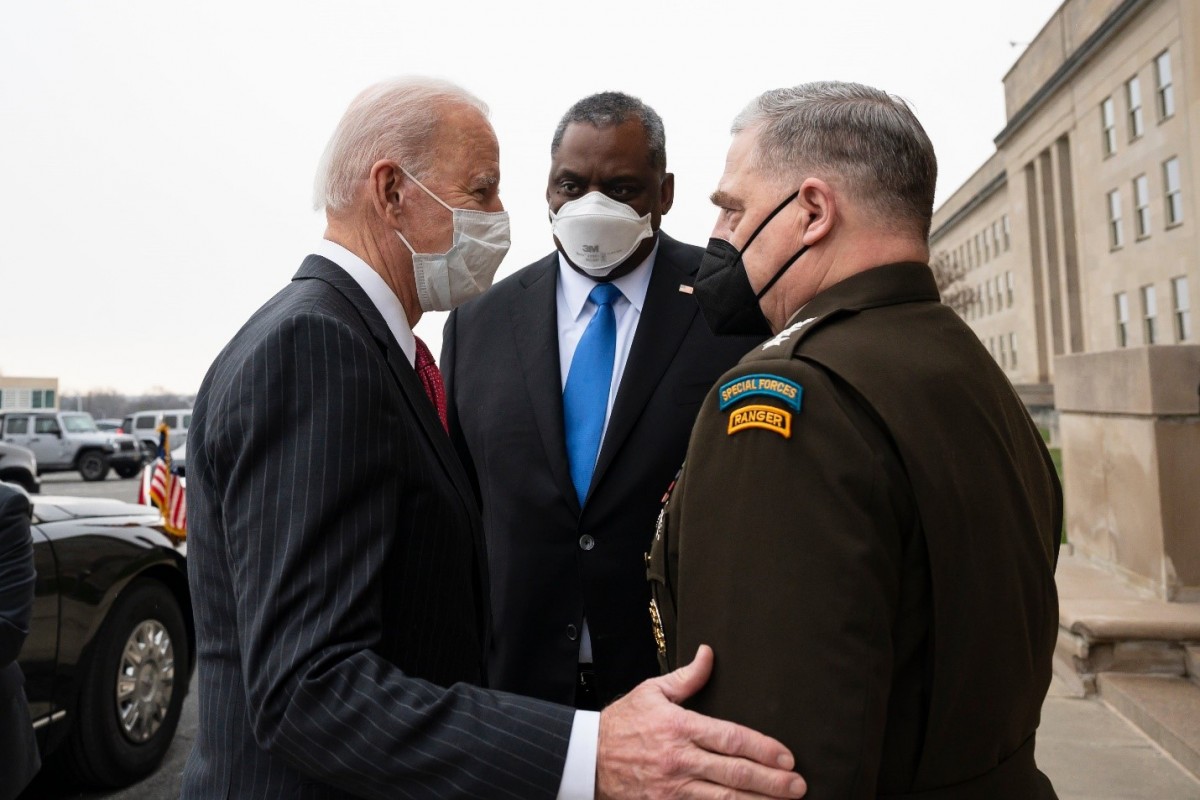Part 1 What Happened to the Beloved Military
Words of wisdom from the great Victor Davis Hanson
The highest echelon of the U.S. military is becoming dysfunctional.
There are too many admirals and generals for the size of the current U.S. military. It now boasts three times the number of four-star admirals and generals than we had during World War II—when the country was in an existential war for survival and when, by 1945, our active military personnel was almost nine times larger than the current armed forces.
Somehow a gradual drift in the agendas of our military leadership has resulted in too many various emphases on domestic cultural, social, and political issues. And naturally, as a result, there is less attention given to winning wars and leveraging such victories to our nation’s strategic advantage.
The consequences of these failures are downright scary for a world superpower upon which millions at home and billions worldwide depend.
There are too many concurrent Pentagon crises. Any one of them would be dangerous to our national security. Together they imperil our very freedoms and security.
Reform?
What is to be done? The Uniform Code of Military Justice must be enforced, and not selectively applied on the basis of rank: officers below the rank of general and admiral now face severe penalties for disparaging in personal terms the current administration, while one stars and above are given de facto exemptions for comments about the previous administration. If the code is not considered law but merely a recommendation, then it should be scrapped.
The Department of Defense Office of Inspector General and the inspector generals of the various branches of the military must enforce existing laws that carefully define the limits of the Joint Chiefs of Staff activity. And they must punish those officers who violate such statues to interrupt the legal chain of command.
There must be a cooling off period to prevent retiring military officers from rotating onto the boards and lobbying teams of corporate defense contractors, with the presumption that their knowledge of the operation of the Pentagon can be monetized to the advantage of particular corporations. Five years seems a reasonable period in which our top brass should refrain from joining firms that are seeking lucrative contracts from the Pentagon.
Any former high-ranking retired officer who is paid to provide military commentary on news channels should not enjoy security clearances. The practice is currently much abused. A good example was the case of retired General James Clapper. For months, he went on television, with presumptions of superior wisdom, supposedly based on his access to confidential intelligence, and flat out deceived the American people about the so-called Russian collusion hoax and the supposed treasonous nature of the president.
We are currently witnessing several scandals in the Department of Justice, the IRS, the CIA, and the FBI by careerist, unelected employees. But far more chilling is the crisis in the U.S. military upon which we all must depend. Its revered history and accomplishment must somehow remain a source of pride and inspiration to guide all of us in these frightening times ahead.
So, What Happened to the Joint Chiefs?
First, the Joint Chiefs have now gone astray. Laws passed in 1947, 1952, and 1986 explicitly defined—and incrementally but steadily narrowed—the mission of the JCS. The Chair may be the nation’s highest iconic ranking military officer. But his actual operational control over the military is carefully delineated by law and quite limited by design.
In sum, the JCS is an advisory body. Members are made up of four-star officers of their respective branches of the military. But by statute they are not responsible for carrying out orders from the president as relayed through the Secretary of Defense.
Instead, these highest-ranking officers of the various services, led by a chairman, are to present various options during times of policy debate, consultation, and crisis.
Nothing could be clearer about such an important though advisory role. Yet the present chairman, General Mark Milley, if media accounts are accurate, has apparently violated both the spirit and letter of the law. He reportedly called together top officers of the military services and ordered them to reroute long-held protocols in reference to the nuclear defense of the United States in times of peril—and to channel such operational decision-making through himself.
That clear and dangerous usurpation of power is certainly contrary to the law—no matter what his fellow officer corps defenders plead. It is entirely irrelevant whether Milley acted in good faith, or was swayed by the emotions of the time, political and media pressures, or his own outsized ego. His job is to stay cool and offer calm advice strictly within the letter of the law. And he failed on that critical account.
Milley additionally contacted his Chinese Communist military counterparts to inform them that he so believed that his own country was in a state of crisis—perhaps after a conversation with the speaker of the House and de facto head of the opposition party in the Congress. Further, in freelancing fashion, he apparently promised to warn the Chinese in advance should his own country undertake any aggressive action against Beijing.
Such an act is certainly unprecedented in U.S. military history. And if de facto such acts were to be institutionalized, then the chairman of the Joint Chiefs, with impunity, could ignore the law and place the operation of the military in his own hands, on grounds of his own hunches about the current wisdom or stability of his commander-in-chief. Freelancing psychiatry is not in the job description of the Chairman.
Milley at the time claimed—and later denied—that he feared in late 2020 that Donald Trump, one of the rare presidents to have eschewed optional wars and preemptive attacks, might be too trigger happy to entrust with his constitutional appointed powers under the Constitution as an elected president.
Aside from the fact that the Constitution has ample remedies for such a scenario—from conviction of an impeachment indictment in the Senate to removal under the 25th Amendment—that is an absurd excuse for a veritable coup.
In truth, Trump took an enormous amount of criticism from the current and active officer corps for eschewing a retaliatory strike against Iran, and for choosing not to insert American troops into a volatile standoff between Kurdish troops and the forces of NATO ally Turkey in Syria. Trump is the first president in memory not to have ordered a new major military campaign during his tenure.
Would Milley have acted in such fashion had House Minority leader Representative Kevin McCarthy (R-Calif.) called him, warned him that Joe Biden was dangerously non compos mentis, and then expressed worry that the president’s cognitive disability threatened the entire 20-year effort in Afghanistan, and thus demanded action by Milley to short-circuit the chain of command?
The civilian-military tradition of U.S. national security cannot survive a Joint Chiefs chairman who informs Washington journalists that he believes his commander-in-chief exhibits Hitlerian characteristics, appropriates power from the elected president, violates the chain of command, freelances in foreign policy with a foreign and hostile military, and communicates directly to take such action with the opposition leader speaker of the House—after circumventing an elected president. Whether he knows it or not, Milley’s resignation is not a matter of if, but only of when. If Milley were not to resign, then we essentially have no civilian control over the military, and his dereliction will be a green light to other would-be usurpers of rights denied the Joint Chiefs of Staff by law.
A Uniform Code of Military Whatever?
Second, the once hallowed Uniform Code of Military Justice is now a mere construct. It is widely ignored to the point of parody—at least for officers above the rank of colonel who violate Article 88’s prohibition of using “contemptuous words against the President.”
Remember the statute was aimed at forestalling military officers condemning unpopular or controversial presidents, not beloved leaders—in the manner that the First Amendment protects heterodox, not orthodox, expression. That obvious fact was totally lost in the mob-like rush to vilify the president by an entire cadre of four-star retired generals and admirals in 2020-21.
Continue Reading Part 2: https://www.colmikehoward.com/article/Part+2+What+Happened+to+the+Beloved+Military





